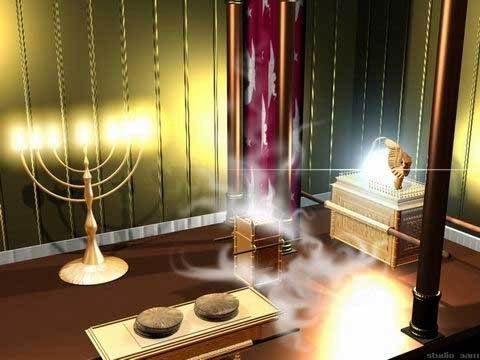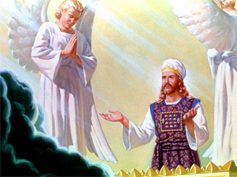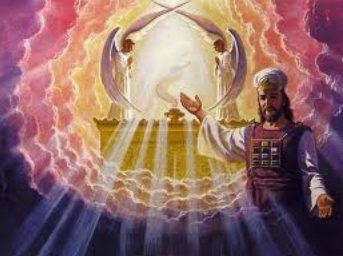Discovering the Gospel in Leviticus
(A Path to Holiness)
The book of Leviticus is often seen as challenging or obscure, filled with laws, rituals, and sacrifices that seem distant from our daily lives. But at its heart, Leviticus is a powerful revelation of God’s holiness and His desire for a relationship with His people. This ancient book lays a foundation for understanding the Gospel of Jesus Christ, showing how God’s plan for salvation has always been focused on bringing humanity back into communion with Him.
The Call to Holiness
Leviticus begins with God speaking to Moses, outlining detailed laws that would guide the Israelites in living holy lives. “Be holy, for I am holy,” God says in Leviticus 11:45. This is the central theme of the book: holiness. God’s desire is for His people to be set apart, reflecting His purity and righteousness. This call to holiness mirrors the New Testament teachings about Christians living in holiness through Christ (1 Peter 1:16).

However, Leviticus makes it clear that no one can achieve holiness on their own. The various sacrifices, rituals, and laws were put in place because of sin—separating people from a holy God. These practices show that sin has a cost and that restoring a broken relationship with God requires atonement.
The Sacrificial System and the Gospel
One of the most prominent features of Leviticus is the sacrificial system. Animal sacrifices were required as a way of covering sin and restoring fellowship with God. These sacrifices pointed forward to the ultimate sacrifice—Jesus Christ, who would take away the sins of the world (John 1:29).

The offerings, such as the burnt offering (Leviticus 1) and the sin offering (Leviticus 4), were shadows of Christ’s sacrifice. In Leviticus, animals were offered repeatedly because the blood of animals could only cover sin temporarily (Hebrews 10:1-4). Jesus, on the other hand, offered Himself once for all, fully satisfying God’s justice and providing a permanent way for humanity to be reconciled to God (Hebrews 10:10-12).
The Day of Atonement
One of the key events in Leviticus is the Day of Atonement, found in Leviticus 16. On this day, the high priest would enter the Most Holy Place in the Tabernacle to offer sacrifices for the sins of the people. The priest would sprinkle the blood of a sacrificial animal on the mercy seat, symbolizing the covering of sin. A scapegoat was also sent into the wilderness, carrying away the sins of the people.

This ceremony points directly to Jesus, who is both our High Priest and the sacrificial Lamb (Hebrews 9:11-12). Jesus entered the true Holy of Holies in heaven, offering His own blood to cleanse us from sin. He also carried our sins away. The Day of Atonement foreshadows the ultimate work of Christ in bringing us reconciliation with God.
Jesus as Our Great High Priest
Leviticus outlines the role of the priests, who served as mediators between God and the people. These priests had to be ritually cleansed and offer sacrifices for their own sins before they could approach God (Leviticus 8-9). In contrast, Jesus is our sinless High Priest, who doesn’t need to offer sacrifices for His own sin because He is perfect (Hebrews 4:14-15). Through Him, we have direct access to God and can approach His throne of grace with confidence (Hebrews 4:16).

Clean and Unclean: A Lesson on Sin
Leviticus also details laws about what is clean and unclean, including food, clothing, and behavior (Leviticus 11-15). While these laws may seem outdated, they teach a powerful lesson about the seriousness of sin. Just as the Israelites had to avoid defilement to remain in a covenant relationship with God, sin defiles our hearts and separates us from God. Jesus teaches that true defilement comes from within—a defiled heart is what makes someone unclean (Mark 7:20-23). The Gospel of Jesus offers cleansing not just on the outside but deep within, purifying our hearts and making us whole.
The Importance of Worship and the Presence of God
Leviticus highlights the importance of worship and dwelling in God’s presence. The Tabernacle was central to Israel’s worship, and God’s presence was among His people (Leviticus 9:23). This physical presence of God in the Tabernacle points to Jesus, who “tabernacled” among us when He came to earth (John 1:14). Through Christ, we now experience the presence of God in a personal and intimate way, as His Spirit lives within us (1 Corinthians 6:19).

Holiness and the Gospel Today
Leviticus is not just a book of ancient rituals; it reveals a deep truth about God’s nature and His plan for humanity. Just as God called the Israelites to live holy lives, He calls Christians to live holy lives through Christ’s power. The sacrifices of Leviticus were temporary, but the sacrifice of Jesus is eternal. Through His death and resurrection, we are made holy and able to stand before a holy God, forgiven and cleansed.
In reading Leviticus, we see how God’s plan of redemption through Jesus Christ has been in place from the beginning. The laws and rituals that may seem strange at first glance actually point us to the heart of the Gospel: God’s desire to restore His people and make them holy through the perfect sacrifice of His Son.
An Invitation to Discover

Leviticus may seem like a difficult book, but it is full of rich insights that deepen our understanding of God’s holiness, our need for salvation, and the incredible grace offered through Jesus. By studying Leviticus, we can appreciate the depths of God’s love and how He has been working throughout history to bring His people back to Him.
So why not take the time to read the book of Leviticus? As you do, consider how each law, sacrifice, and ritual points forward to the ultimate sacrifice of Jesus Christ. Leviticus is more than just a book of rules; it’s a revelation of God’s plan for salvation and an invitation to live a life of holiness through the Gospel.
“For the law was given through Moses, but grace and truth came through Jesus Christ.”


